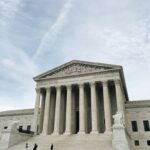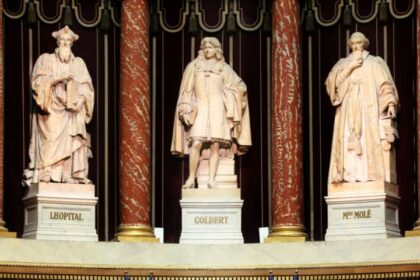Introduction
In every constitutional democracy, some acts strike at the very heart of the system. They are not merely criminal — they are existential threats to the state itself. High treason is one such act.
Under the Constitution of Ghana, any person who violently or unlawfully suspends, overthrows, or attempts to overthrow the Constitution — or who aids and abets such efforts — is guilty of high treason, punishable by death upon conviction.
But what exactly qualifies as high treason? Who can commit it? And in a world increasingly sensitive to human rights, is death still a justifiable punishment?
The Legal Definition: Breaking It Down
Let’s analyze the Section 3(3)(a) – (b) of the Constitution under review as follows: provision:
“Any person who—
(a) by himself or in concert with others by any violent or other unlawful means, suspends or overthrows or abrogates this Constitution or any part of it, or attempts to do any such act; or
(b) aids and abets in any manner any person referred to in paragraph (a);
*commits the offence of high treason and shall, upon conviction, be sentenced to suffer death.”
This law identifies two categories of offenders:
- Direct Actors – Individuals who take part in violent or unlawful efforts to suspend or overthrow the Constitution.
- Accomplices – Individuals who aid or abet those efforts, regardless of how indirect their involvement may be.
The key elements are:
- Violent or unlawful means
- Intent to dismantle constitutional order
- Attempt or completion of such acts
High treason is not like theft, fraud, or even murder. It is a betrayal of the entire political system — a direct assault on constitutional governance and national stability.
In many jurisdictions, including Ghana, it is punishable by mandatory death, reflecting its gravity. This is both symbolic and practical:
Symbolic, because it defends the Constitution’s supremacy.
Practical, because it acts as a deterrent to would-be coup plotters or insurgents.
So, what does high treason look like in practice?
- Military coup attempts aimed at removing an elected government.
- Armed insurgencies intending to establish a parallel government.
- Unlawful declarations of secession followed by violence.
- Funding or planning violent disruption of constitutional institutions.
Even indirect involvement, such as providing weapons, funds, or strategic support to those carrying out such actions, falls under the “aiding and abetting” clause — and is just as treasonous.
While the Constitution provides for mandatory capital punishment, this raises serious questions like:
- What about human rights?
- Does due process get compromised in political trials?
- Can the death penalty be justified when used against dissenters who may be labeled “traitors” by authoritarian governments?
Many human rights advocates argue that treason laws, if abused, can become tools of repression rather than justice. Vague or politically motivated accusations could lead to death sentences for activists or opposition figures — not actual traitors.
United States: Treason is narrowly defined in the Constitution. Punishable by death, but rarely invoked.
South Africa: No death penalty — treason carries life imprisonment.
Ghana & Kenya: Retain the death penalty for high treason, though rarely applied.
United Kingdom: Death penalty abolished; treason still exists as a serious criminal charge.
So while many countries still recognize treason, there is growing international consensus that execution may not be a proportionate punishment, especially where trials may be politically charged.
Conclusion:
High treason is meant to punish those who seek to destroy the state. But the real test of a democratic government lies in applying this law fairly, transparently, and without political bias.
The Constitution is sacred — but so is due process. While those who plot its downfall must be held accountable, the punishment must always reflect both justice and humanity.










